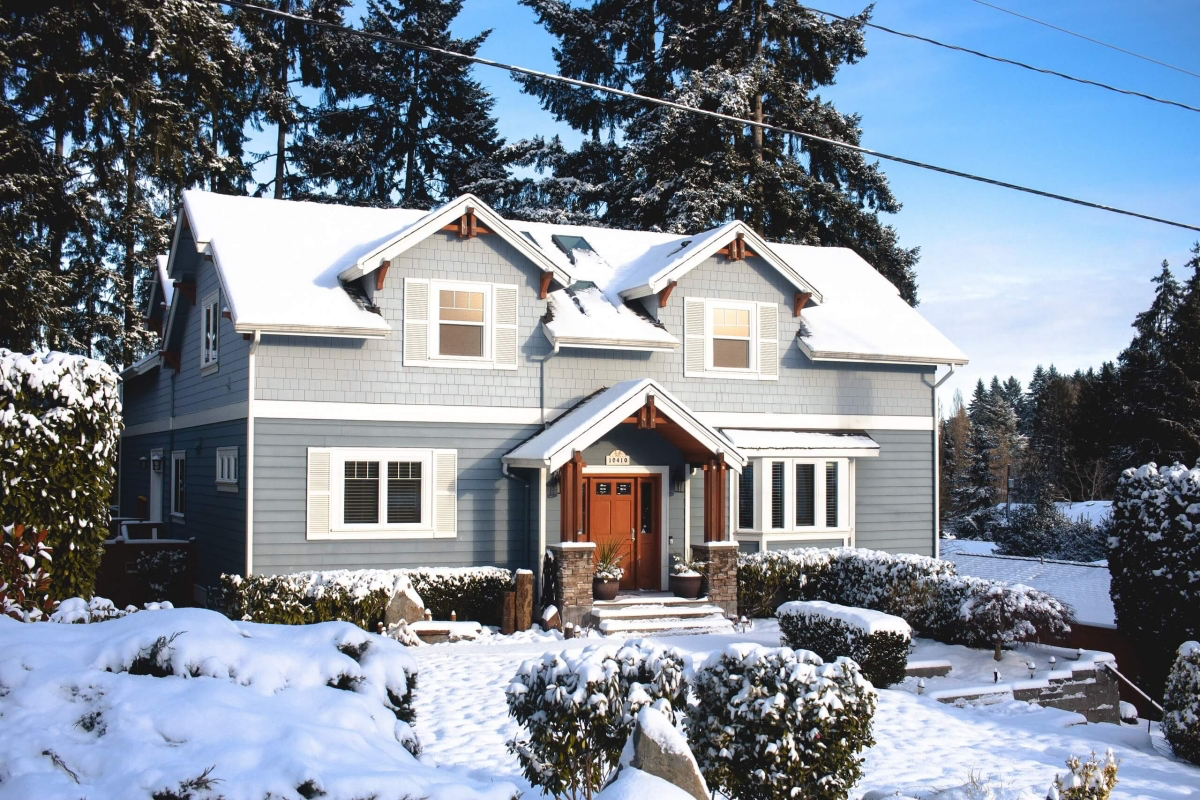Dry and Cozy: How to Reduce Humidity in The House in Winter
As winter blankets the world in a frosty embrace, we often find solace in the warmth and comfort of our homes. But while we welcome the cozy respite from the cold, there’s one wintertime woe that can creep into our lives—indoor humidity. Picture condensation on windows, dampness in the air, and that feeling of clammy discomfort. If you’ve ever wondered how to maintain that perfect balance of dryness and warmth during the winter months, you’re in the right place. In this cozy journey, we’ll explore the art of reducing humidity in your house during winter. It’s a quest for that […]

As winter blankets the world in a frosty embrace, we often find solace in the warmth and comfort of our homes. But while we welcome the cozy respite from the cold, there’s one wintertime woe that can creep into our lives—indoor humidity. Picture condensation on windows, dampness in the air, and that feeling of clammy discomfort. If you’ve ever wondered how to maintain that perfect balance of dryness and warmth during the winter months, you’re in the right place. In this cozy journey, we’ll explore the art of reducing humidity in your house during winter. It’s a quest for that ideal atmosphere where you can wrap yourself in a blanket, sip hot cocoa, and revel in the joy of being snug and dry. So, join me as we unlock the secrets to achieving the ultimate winter haven.
Time to learn how to reduce humidity in the house in winter

Dry and Cozy: How to Reduce Humidity in The House in Winter
The Essentials: What You’ll Need
Before we embark on our mission to reduce indoor humidity, let’s make sure you have the essential tools and appliances at your disposal. Here’s your checklist:
- Humidity Monitor: A digital humidity monitor or hygrometer will be your trusty sidekick in this endeavor. It allows you to keep tabs on the moisture levels in your home.
- Dehumidifier: Investing in a good-quality dehumidifier is key to tackling excessive indoor humidity. Look for one that suits the size of the space you need to dehumidify.
- Weatherstripping Materials: Weatherstripping helps seal gaps around doors and windows, preventing cold drafts and excess moisture from sneaking in.
- Ventilation Tools: Consider adding exhaust fans or attic vents to enhance air circulation in your home.
With these tools and appliances in hand, let’s journey into the world of winter humidity reduction.
A dehumidifier is a key appliance for tackling excessive indoor humidity
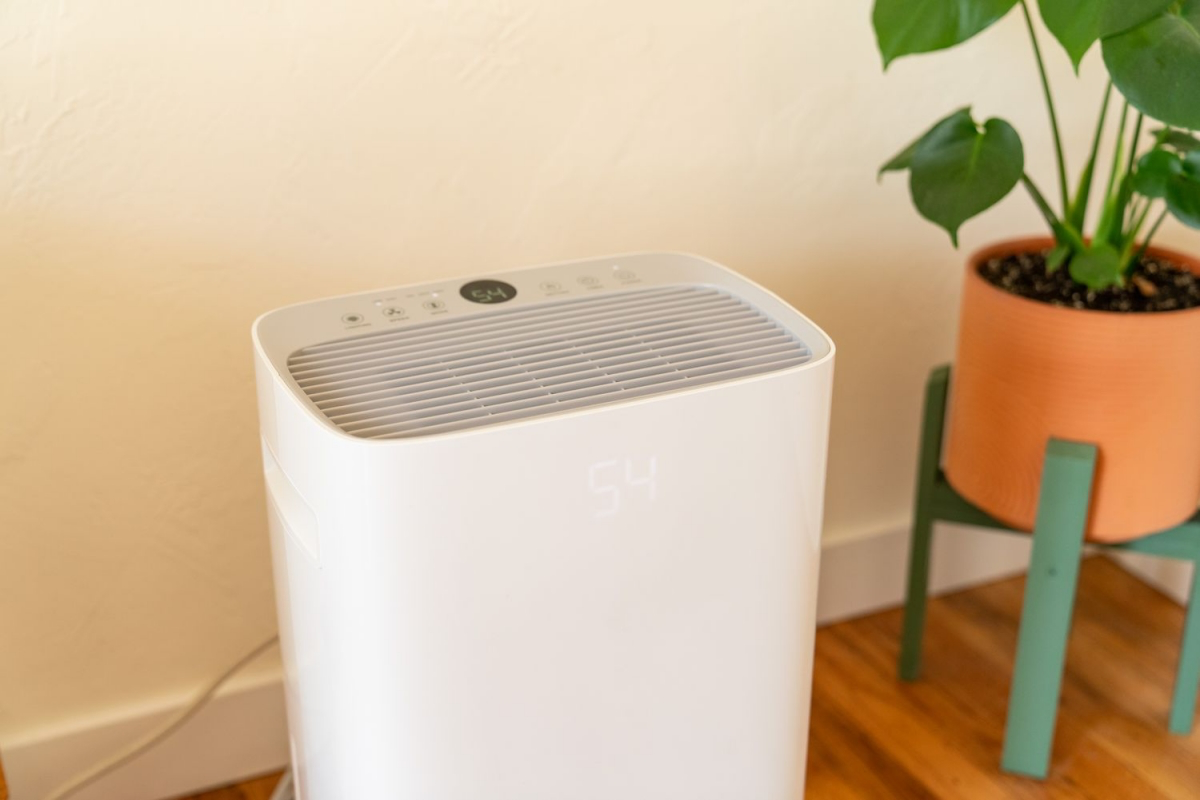
Step 1: Humidity Monitoring
The first step in achieving that perfect balance is to know where you stand. Use your trusty humidity monitor to measure the humidity levels in your home. Indoor humidity should ideally be around 30-40% during the winter months. If it’s higher than that, it’s time to take action.
A humidity monitor will help you measure the humidity levels in your home
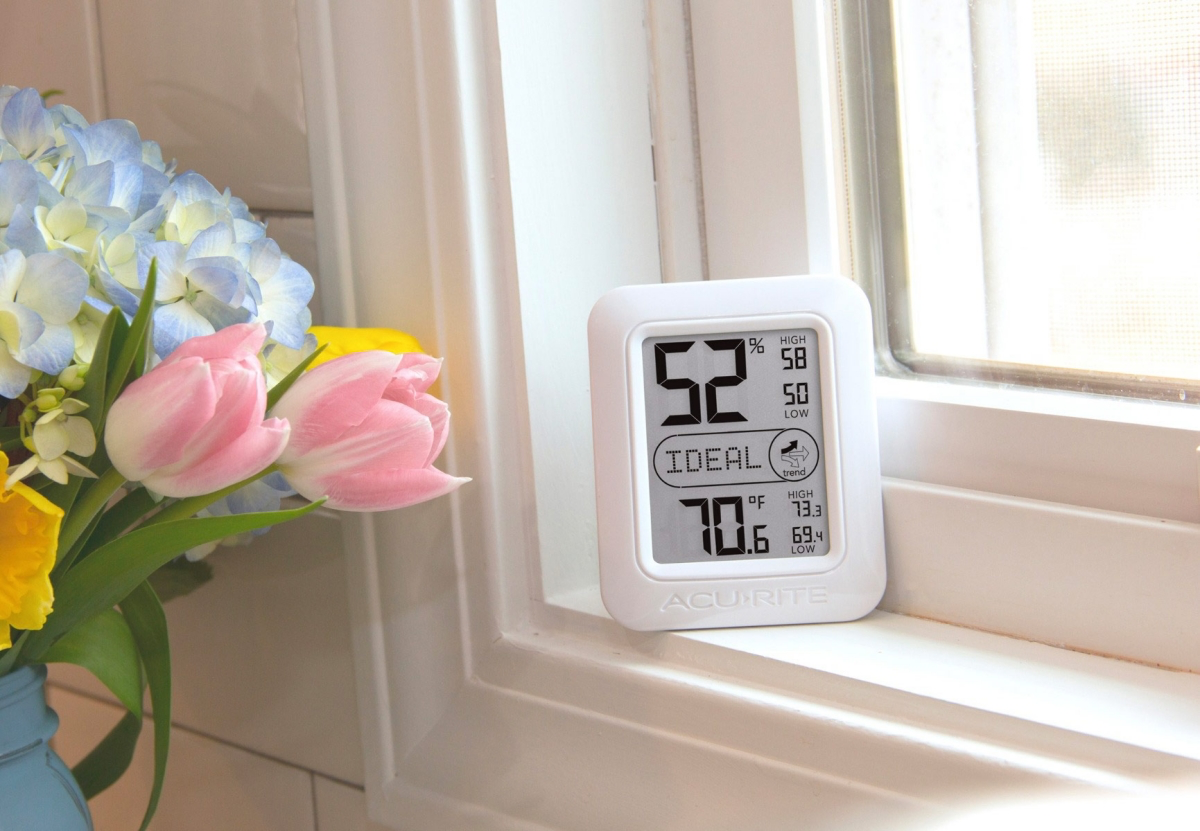
Step 2: Weatherstripping Wonders
Gaps around doors and windows can be a gateway for moisture-laden air to infiltrate your home. Check for drafts and seal any gaps with weatherstripping materials. This not only helps in reducing humidity but also keeps your home cozy and energy-efficient.
Step 3: Embrace the Dehumidifier
Your dehumidifier is the hero of this story. Place it in areas with high humidity, such as basements, bathrooms, or laundry rooms. Set it to maintain the desired humidity level. Be sure to empty the collected water regularly and clean the machine as per the manufacturer’s instructions.
Place a humidifier in damp areas like basements, bathrooms, and laundry rooms
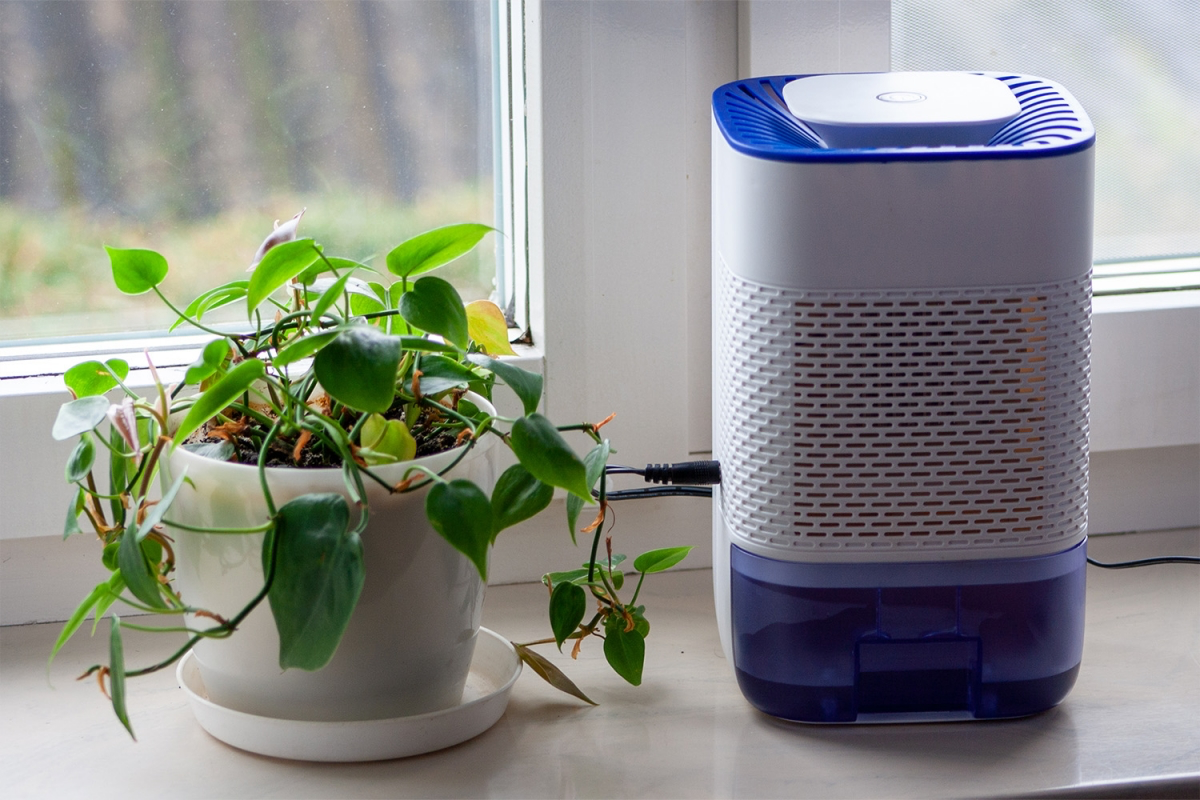
Step 4: Ventilation Vitality
Proper ventilation is essential for reducing indoor humidity. Use exhaust fans while cooking or showering to expel excess moisture. If you have an attic, consider adding vents to enhance air circulation.
Step 5: Embrace the Cold
During the winter months, it might seem counterintuitive, but allowing some fresh outdoor air into your home can help reduce humidity. On dry and cold days, open windows for a brief period to let in the crisp air. Just remember to close them once the air inside has had a chance to refresh.
Allow some fresh outdoor air into your home to help reduce humidity
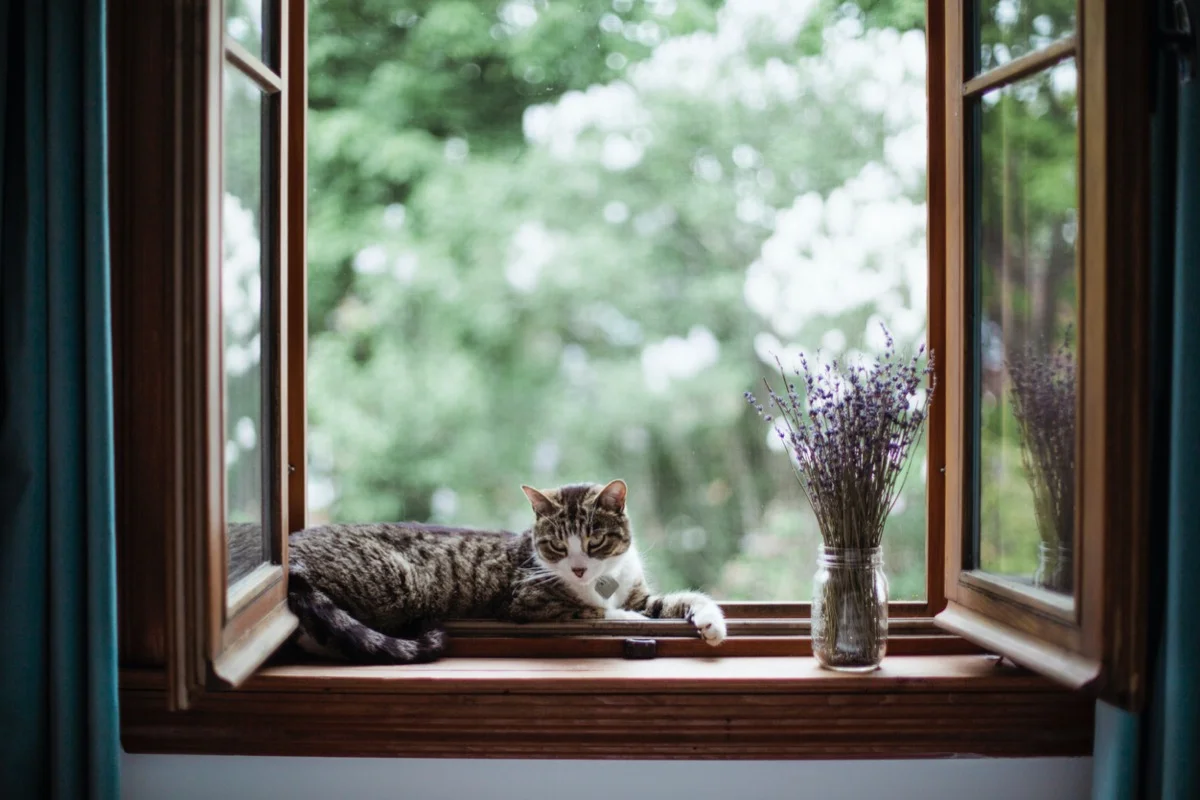
Step 6: Keep Houseplants in Check
While houseplants are delightful, they can also release moisture into the air through a process called transpiration. If you have an abundance of houseplants, consider relocating some of them to areas with lower humidity.
Too many houseplants can release extra moisture into the air
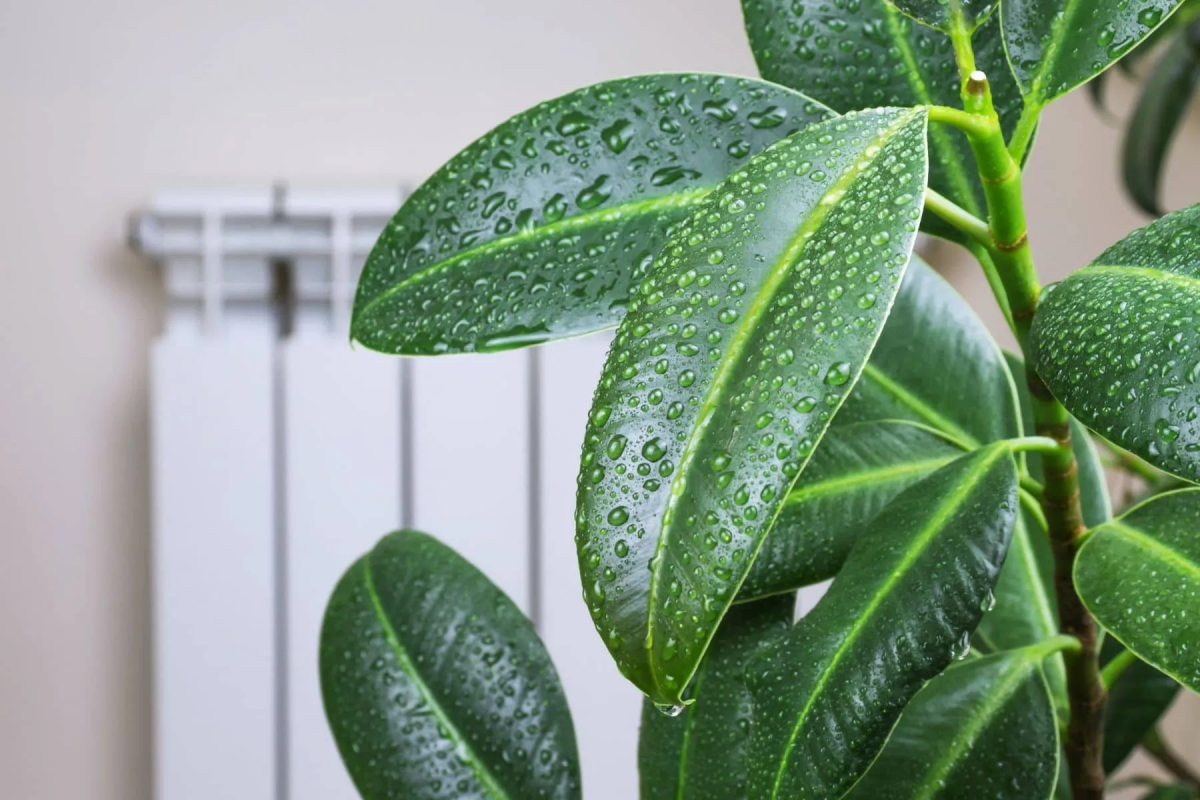
Step 7: Tackle Moisture at the Source
Identify and address potential sources of moisture in your home. Leaky pipes, roof leaks, or faulty appliances can contribute to indoor humidity. Fix any issues promptly to keep humidity in check.
Identify the root cause of all of the moisture in your home

Step 8: Dry Clothes Wisely
If you have a habit of drying clothes indoors during the winter, consider using a vented dryer that expels moist air outside. Alternatively, use a dehumidifier in the laundry area to capture excess moisture.
Consider using a vented dryer that expels moist air outside
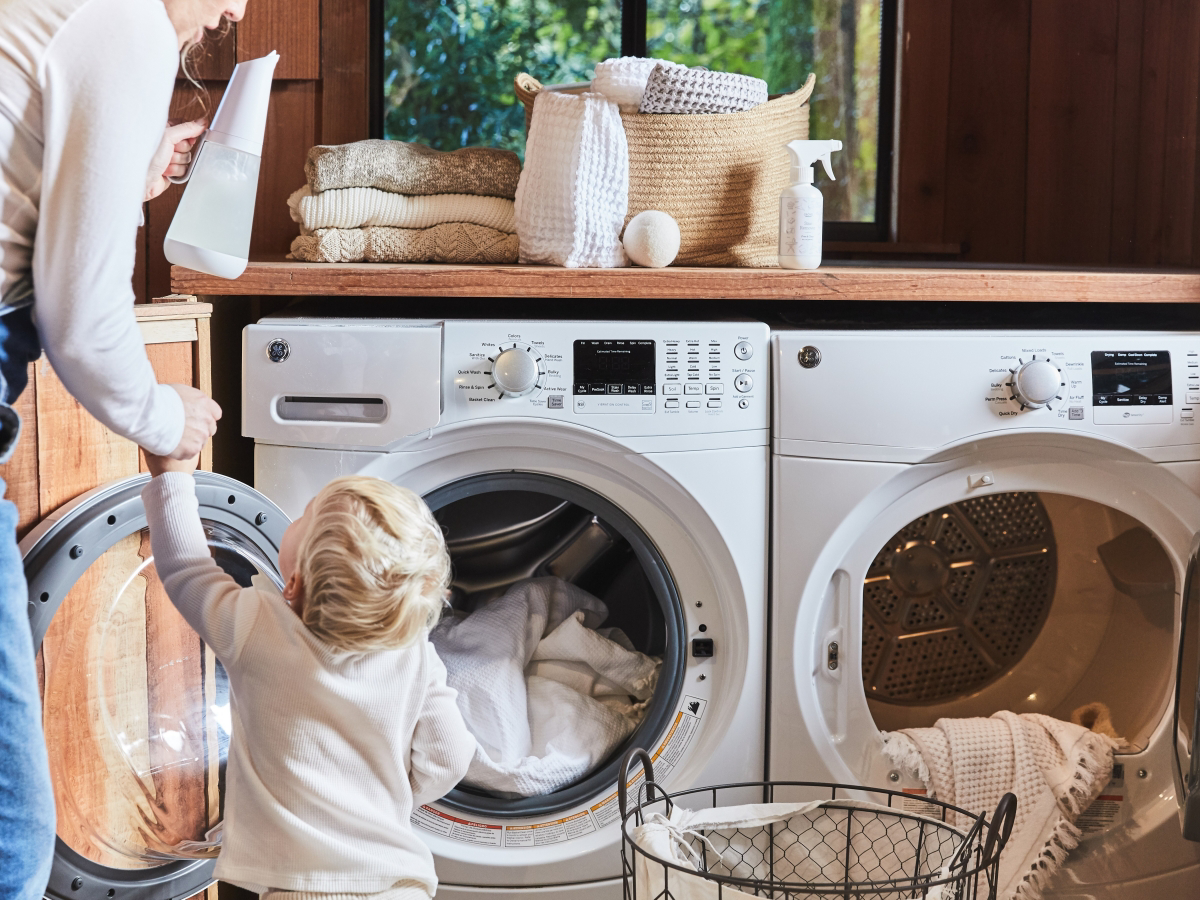
Step 9: Humidity and Heating
Your heating system plays a role in humidity levels. Forced-air heating can dry out the air, reducing humidity. However, if you have radiant heating, it might not have the same effect. Adjust your heating settings as needed to maintain a comfortable and dry indoor environment.
Step 10: Regular Maintenance
To ensure your humidity reduction efforts stay effective, perform regular maintenance on your dehumidifier, weatherstripping, and ventilation systems. Clean, inspect, and replace as needed to keep your home cozy and dry.
All of these appliances need regular maintenance to keep your home dry
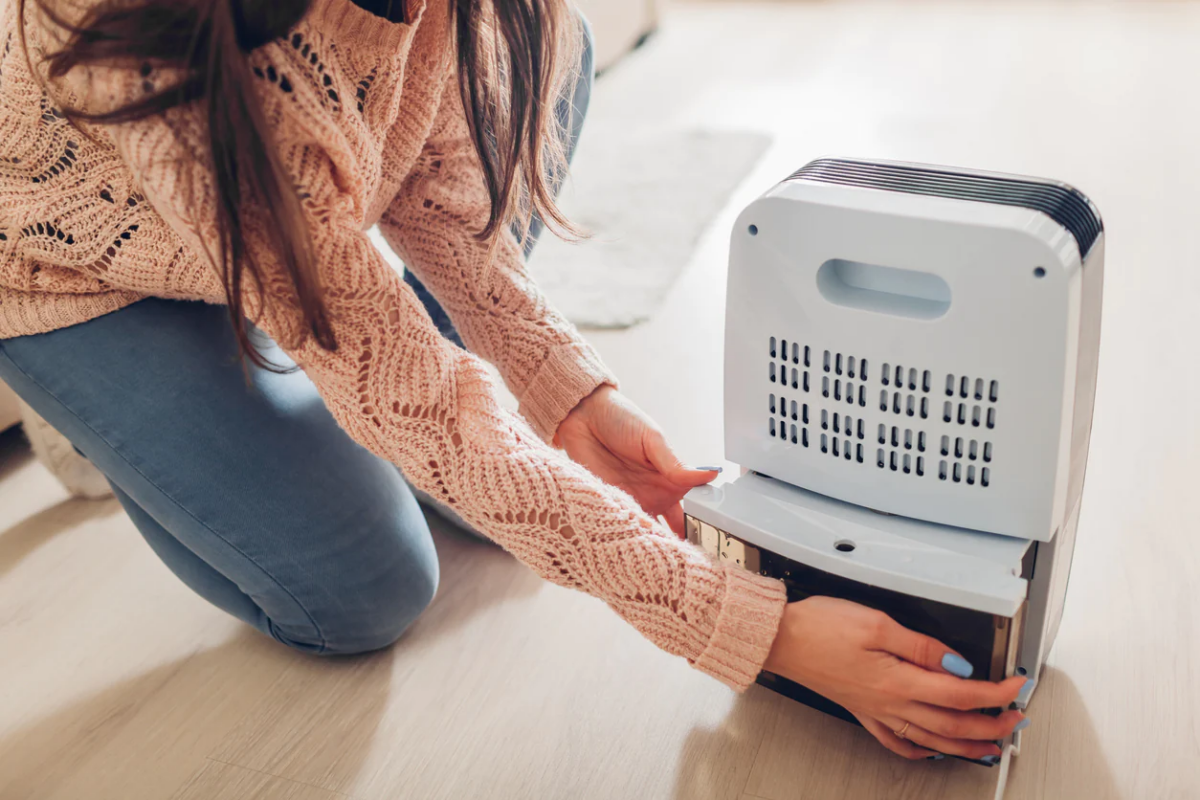
Who Should Embrace Winter Humidity Reduction?
The quest for a dry and cozy home during winter is one that can benefit us all. Whether you’re a homeowner, renter, or simply someone looking to enhance the comfort of your living space, these tips, and tricks are for you. After all, who wouldn’t want to bask in the warmth and snugness of a perfectly balanced indoor environment?
Anyone can benefit from a dryer and cozier home in the winter

Conclusion
As winter paints its snowy tapestry outside, your home can be a sanctuary of dryness and comfort. By following these steps and embracing the art of humidity reduction, you’ll create an atmosphere where you can revel in the cozy joys of the season. So, go ahead, sip that hot cocoa, curl up with a good book, and enjoy the magic of a dry and cozy home during winter.
Now you know how to reduce humidity in the house in winter!
